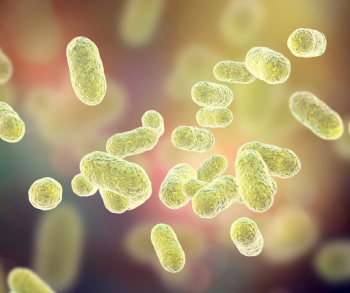What is a Healthy Diet and Why Does It Have Such a Positive Impact on Your Quality of Life and Longevity?
The World Health Organization defines health as “a state of complete physical, mental, and social well-being and not merely the absence of disease or infirmity”. The fact that they have factored in mental health and social well-being as equally important aspects of our overall health is a big achievement. For a very long time, people have thought of the action of eating as a mere routine to “stay alive”. Worse than that is the use of food and diets as a tool to achieve a certain body image that is supposed to come along with a happier and more fulfilled life.
Not many considered the negative impacts that bad eating habits could have on our health and longevity over time. However, the world is starting to realize that it might be possible to avoid certain diseases or even to reverse them by implementing simple changes and sustaining them throughout the years.
If you think about it, we eat a minimum of two to three times a day, most days throughout our lives. We sleep for hours every single day, and we coexist with our thoughts (whether good or bad) 24 hours a day. These three aspects affect one another: an unhealthy diet can affect the quality of your sleep, which consequently affects your mental state and health. Now, imagine that you change some of your food choices for others of better quality and higher nutrition. Those little changes might have an enormous positive impact on your physical and mental health. It doesn’t take a lot of money, willpower, or a big sacrifice like a lot of people think.
It doesn’t mean that you have to give up on everything that you enjoy eating. Nowadays, we have a myriad of different healthy foods in every supermarket, and a million different recipes online. So, to think that living a healthy life is only accessible to a certain kind of person is untrue. Every single person has not only the ability but also the tools necessary to achieve a healthier, better, and longer life. I’ve curated some useful information and tips on how to make smart food choices...
Make Water Your Drink of Choice
Did you know that up to 60% of our body is water? Our brain and heart are about 73% water, and our lungs 83%. Even our bones contain water. It also has major functional importance in our body, such as carrying nutrients and oxygen, helping regulate its temperature, and keeping it moist. We get around 80% of it through drinking water and other beverages, and the remaining 20% we get from food. Although 20% might seem like a lot, some foods like watermelon (92%), lettuce (96%), plain yogurt (88%), or milk (87%) have very high water content.
Needless to say, it is crucial that we drink enough water to compensate for how much we lose when we breathe, sweat, and urinate. For some people, it is hard to remember to stay hydrated, especially during the colder months, so it is important to find habits that work for you. Here are some common examples:
- drinking a glass as soon as you wake
- drinking a glass before every meal
- drinking herbal teas and infusions instead of your current hot drink
- using natural healthy flavors e.g. mint or your favorite fruit
- setting targets for yourself e.g. 2 liters per day
Plan Your Meals Around Vegetables
According to Harvard’s Healthy Eating Plate, vegetables should take the biggest portion (around one-half) of your plate. The more and the greater the variety, the better. They are a fantastic source of many nutrients, including potassium, fiber, and vitamins A, E, and C. Additionally, they supply dietary fiber, which is very important for good gut health and has been linked to a lower incidence of heart disease and obesity.
Health authorities recommend eating dark-green, red, and orange vegetables daily since each color signals the presence of diverse chemicals and nutrients. So, based on that statement, adding as many colors as you can to your plate does not only make it more appealing but also more nutritious.
Vegetables are usually quite bulky as well, which means they take a lot of room once they are in your stomach. This could be especially interesting for people trying to lose weight since they enhance feelings of satiety (a physical feeling that allows you to stop eating) and keep you from eating until the next meal.
Use Whole Grains Instead of Refined
A lot of people are saying that lately, but what does it really mean? What is the difference between whole grains and refined? Well, a grain is made up of three parts: bran (outer layer), endosperm (middle layer), and germ (the core). The outer layer is filled with minerals such as iron, magnesium, phytochemicals, antioxidants, B vitamins, and fiber. The middle layer holds carbohydrates, protein, and small amounts of B vitamins and minerals. The core is rich in healthy fats, vitamin E, B vitamins, phytochemicals, and antioxidants. In the process of refining the grains, the bran and germ are removed. A whole grain, however, contains the three parts intact.
So what are the health benefits of eating whole grains such as oatmeal, brown rice, whole-wheat flour, and bulgur, among others?
- Bran and fiber maintain a steady blood sugar level
- Fiber helps lower cholesterol and move waste through the digestive tract. It may also help prevent heart attacks or strokes by preventing the formation of small blood clots
- Phytochemicals and essential minerals found in whole grains may protect against some cancers (phytochemicals are natural chemical compounds that may have a role in disease prevention)
- Whole grains keep you satiated (not hungry) for a longer time, that way in-between-meals-snacks will not feel as necessary
Avoid Ultra-Processed Foods and Sugars
Highly processed foods are believed to be big contributors to the obesity epidemic and the rising prevalence of chronic diseases (like cardiovascular disease and type 2 diabetes). They have many added ingredients such as sugars, fats, salt, artificial colors and flavors, stabilizers, and preservatives. There are a lot of studies that associate ultra-processed food intake with an increase in total LDL cholesterol, the risk of hypertension, and metabolic syndrome.
Do all processed foods have a negative impact on your health? The answer is no, but that depends on the degree to which a food has been processed.
- Unprocessed or minimally processed foods: they have been slightly altered for preservation, but their nutritional content has remained intact. Examples of unprocessed foods would be vegetables, nuts, fresh fruits, meats, milk, or whole grains. They usually come without any packaging or, if they do, there is only one ingredient on the label.
- Processed foods: minimally processed foods that have added salt, sugar, or fats. They are usually very convenient ready-to-eat products. Examples of processed foods are canned fruits and vegetables, canned fish, some cheeses, and bread. Vegetable oils, flour, and pastas fall into this category as well. In their food label, we can usually find 2-3 ingredients.
- Ultra-processed foods: they are usually unnecessarily packed with salt, sweeteners, fat, and artificial ingredients to promote a longer and more stable shelf life. They are designed to increase palatability and, therefore, cravings so that people overeat and continue buying. Most of them tend to be low in fiber and nutrients. Examples of ultra-processed foods are cookies, chips, breakfast cereals, sugary drinks, and some frozen dinners. You can easily identify them for the (usually) very long list of ingredients on the label.
An easy way of avoiding the overconsumption of these highly processed foods is by simply cooking at home and using unprocessed fresh foods to plan your meals. Planning and cooking ahead for the week is a smart solution to save time and keep you from eating frozen lunches or dinners or going out to a fast-food restaurant. Even sit-down restaurants increase the amounts of salt, fat, and sweeteners in the food they serve to make it more appetizing and palatable. Therefore, eating homemade meals should be a priority and eating out should be limited to special occasions where possible.
What About Sugar?
There are two different types of sugar: the one that occurs naturally in foods that contain carbohydrates (fruits, vegetables, and grains) and the one that is added to the food at some point. The latter can be found in even the most unexpected products such as canned kidney beans, ketchup, store-bought soups, and marinara sauce.
So, what is the difference between them? The main difference is the effect on your blood sugar. When you eat an orange, for example, there is a slow and controlled rise in your blood sugar levels (due to your body having to break down the cells of the fruit), whereas when you drink an orange juice or an orange soda, your blood sugar levels spike and fall very quickly.
Spikes in blood sugar levels are a key indicator for longevity; this is why natural products like berberine are so powerful, as they help to regulate blood sugars. In addition to blood sugar spikes, an orange as a whole fruit contains fiber, which fills you up and keeps you from overeating (most people can drink an orange juice made with 4 oranges; not many people would sit and eat 4 oranges in one go).
How does too much added sugar affect your health? There are a lot of studies that have linked sugar’s negative impact on obesity and diabetes. What people might not be so aware of is its negative impact on their heart health, as the effects of excessive added sugar intake (high blood pressure, weight gain, inflammation, diabetes, and fatty liver disease) are linked to a higher risk of heart attack and stroke. Sugar is not a required nutrient in your diet. Health authorities recommend limiting the intake of calories from added sugar to less than 10% per day.
Longevity Superfoods
As we said at the very beginning, your diet and the quality of the foods that you choose are very important for your overall health. Some foods may have really potent anti-aging properties.
Broccoli Sprouts
- Really high in sulforaphanes, which have been shown to slow cancer rates and cardiovascular biomarkers, reduce inflammation, and remove bodily toxins
- Not to be confused with the most common broccoli (mature broccoli)
Strawberries
- Stacked full of something called fisetin, which has been shown to extend healthy life in mice by 10%
Spinach
- Gives you folate, without which healthy DNA cannot be made.
- Has been shown to protect telomere length, and we want those as long and protected as possible!
Avocado
- Healthy source of fat
- High in oleic acid, which has shown promise in lowering blood pressure and activating sirtuins
These are just a few examples of foods that can contribute to a healthy and potentially longer life. Remember, incorporating a variety of nutrient-dense foods into your diet, staying hydrated, and avoiding excessive intake of processed foods and sugars are key components of a healthy lifestyle. If you have any questions, feel free to reach out.





